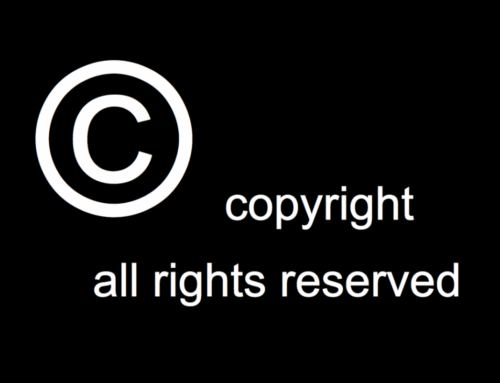Businesses are understandably upset when they discover that someone is posting negative online reviews or other disparaging comments about their products, services, or operations on social media.
Some companies have tried to protect themselves against negative reviews by adding clauses to their terms of service and other contracts that prohibit customers from making disparaging comments.
Other companies take a different tack, adding clauses requiring their customers to assign them the copyrights in any reviews they might write. Then, when a customer posts a review a company doesn’t like, the company files a take-down notice based on the customer’s infringement of the company’s copyright in that review.
While these might seem like good ideas to business owners, these activities can result in significant liability.
The Consumer Review Fairness Act protects consumers’ ability to share their honest opinions about a business’s products, services, or conduct in any forum, including online reviews and social media posts, as well as uploaded photos and videos.
This law makes it illegal for a business to use any provision in a form contract that:
(a) prohibits or restricts the ability of a person who is a party to that contract to review a company’s products, services, or conduct;
(b) imposes a penalty or fee against someone who gives a review; or
(c) requires people to give up their intellectual property rights in the content of their reviews.
If a business uses one of these contract provisions anyway, that provision is void.
The Federal Trade Commission (FTC) and state Attorneys General enforce this law, and a violation is treated the same as violating an FTC rule relating to unfair trade practices. Violators could, therefore, be subject to financial penalties and court orders.
There is, however, no private right of action. In other words, you as a consumer cannot sue a business for violating this law.
Under this law, it is legal to prohibit or remove a review that:
(a) contains confidential or private information;
(b) is libelous, harassing, abusive, obscene, vulgar, sexually explicit, or is inappropriate with respect to race, gender, sexuality, ethnicity, or other intrinsic characteristic;
(c) is unrelated to the company’s products or services; or
(d) is clearly false or misleading (the FTC adds, “it’s unlikely that a consumer’s assessment or opinion with which you disagree meets the ‘clearly false or misleading’ standard.”).
It’s also a bad idea to write your own fake reviews to counteract negative reviews.
Not only will this likely violate the rules of the website hosting the reviews, but FTC guidelines require that all endorsements disclose material connections to the company selling the reviewed product or service.
For this reason, you also cannot ask family and friends to write fake reviews. To comply with the guidelines, these reviewers would have to disclose their connections to the company in the review.
Since readers of these reviews would know they were written by a company employee, or a cousin of the owner, they would likely not consider them credible.
While it’s legal to do so, suing for defamation is rarely a wise choice, since a lawsuit will not only be expensive, but also draw attention to the negative review.
What should you do about a negative review? Experts in these matters suggest that you first calm down and seek objective feedback from a third party.
Also, review the guidelines of the website where the review was posted. Does the review comply with those guidelines? If not, send a polite email asking the site to remove the offending post.
If the review isn’t removed, you should post a polite responsive comment – even if you know you won’t sway that person’s opinion.
Your response isn’t necessarily intended to please the complaining party, but to show potential customers reading the exchange that you’re trying to please your customers.
Your response should not be argumentative or condescending. Rather, you should say something along the lines of: “We’re sorry you had a bad experience. We take client feedback very seriously and would love to help you out. If there is something we can do, please contact me directly.”
You can also ask your happy customers to post reviews. If you do so, remember that the FTC guidelines will require customers to disclose any payments or freebies they received.
Please feel free to contact us if you have any questions about dealing with negative reviews or if you need any assistance updating your business’s contracts or website terms and conditions in order to comply with the Consumer Review Fairness Act.
Image used by license from depositphotos.com






